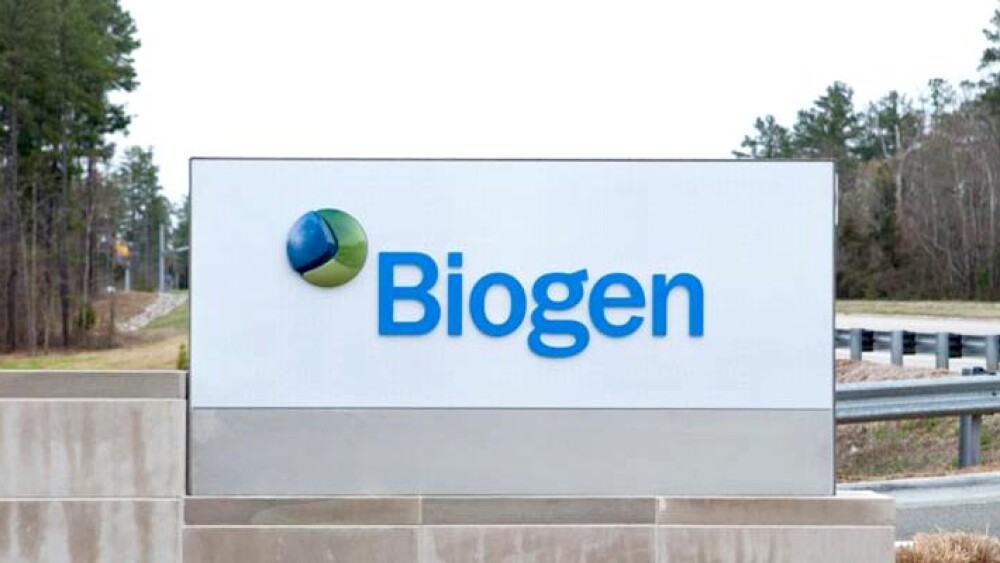October 27, 2016
By Mark Terry, BioSpace.com Breaking News Staff
Investors got their chance to dive a little deeper into Biogen ’s finances at its third-quarter conference call yesterday. Despite a pop in the stock value and some promising news for nusinersen and aducanumab, there are other factors that make Biogen seem like a company in pause mode waiting for something to happen.
First up, Biogen’s chief executive officer, George Scangos, is retiring at the end of the year. Investors naturally wanted an update, any hints at all, on who might be replacing him. In the conference call, Scangos said, “Although our search for a new CEO is progressing, we don’t have an update on timing yet.” He went on to say that the search is attracting “very qualified candidates from a variety of backgrounds. We all believe that the sooner we get a new CEO in place, the better for all of us.”
Many of the concerns revolve around the company’s multiple sclerosis (MS) franchise. Tecfidera, its best-selling drug, exceeded sales expectations in the quarter. But Bloomberg reports that the reason is “partly because of an inventory build-up by customers that may not repeat. Revenue for the drug outside the U.S. fell sequentially, and the overall U.S. commercial market for MS slowed down.”
In addition, most of the Tecfidera growth is related to price increases. Bloomberg writes, “That’s a risky strategy in the current political environment and when alternatives to the drug exist.” Copaxone, Teva’s competing drug, just got hit with a generic version, which will also threaten Tecfidera. And Roche , Novartis and Celgene all have MS drugs in their pipelines.
And taking a look at Biogen’s pipeline almost immediately brings attention to its aducanumab, currently in two Phase III trials for Alzheimer’s disease. Even if it’s a modest success, it’ll likely be a blockbuster drug. But it has to get approved first, and that’s never a sure thing. And investors and analysts are eager to compare Biogen’s Alzheimer’s drug to Eli Lilly ’s solanezumab, also in a late-stage trial for Alzheimer’s.
“We think if there were positive results out of the solanezumab trial this would give great credence to the amyloid hypothesis of Alzheimer’s disease, and I think it bodes well for the potential results of aducanumab,” said Michael Ehlers, head of Biogen’s R&D, at the third-quarter conference call. “However … we believe it will be much more difficult to make a conclusion about a negative result on solanezumab vis-à-vis the potential results of aducanumab.”
The company indicates it plans to present extra data on the aducanumab Phase Ib trial at the Clinical Trials on Alzheimer’s Disease conference held in December.
And although it was slipped into the published third-quarter results almost as an aside, Biogen is killing development of amiselimod (MT-1303), which it licensed from Mitsubishi Tanabe Pharma in September 2015 for $60 million up front with a potential $484 million in milestone payments. The company original planned to evaluate it in MS, ulcerative colitis, Crohn’s disease, and other autoimmune disorders.
About the only thing the company had to say about that was Ehlers comment that it “wasn’t as good of a fit” as other drugs in its portfolio.
Otherwise, much of the focus of the conference call was nusinersen, which had positive results in a Phase III trial for spinal muscular atrophy. Biogen plans to submit the drug to the U.S. Food and Drug Administration (FDA) and the European Medicines Agency (EMA). Although that looks like a good shot, if approved, it wouldn’t hit the market until 2018.
Bloomberg writes, “Biogen’s sales growth already looks glacial compared to its high-flying past. This quarter saw 6.4 percent revenue growth, the lowest since 2012. Growth might slow even further as Biogen hives off the hemophilia business and its MS franchise continues to languish. … A lame-duck CEO is not about to fix that. Until someone new takes the reins—whenever that might be—Biogen’s story will likely continue to be one of sluggish growth and crossed fingers.”





